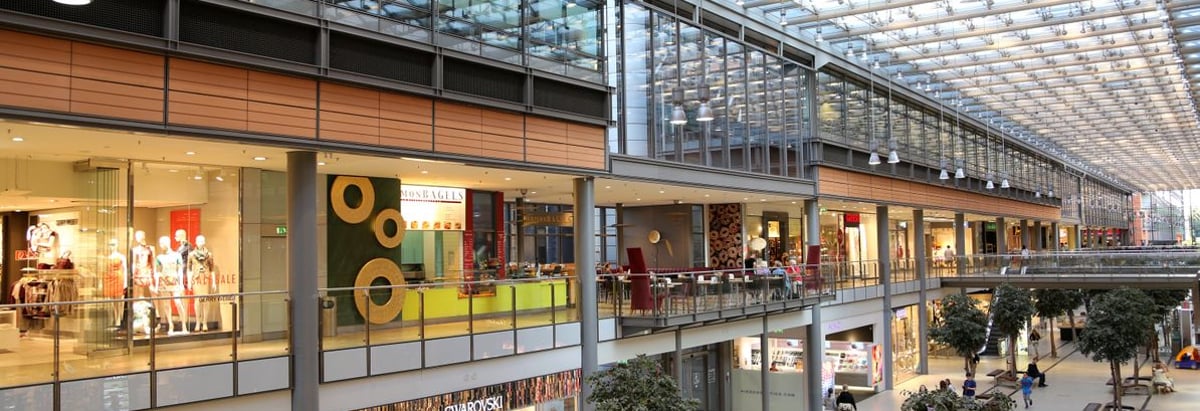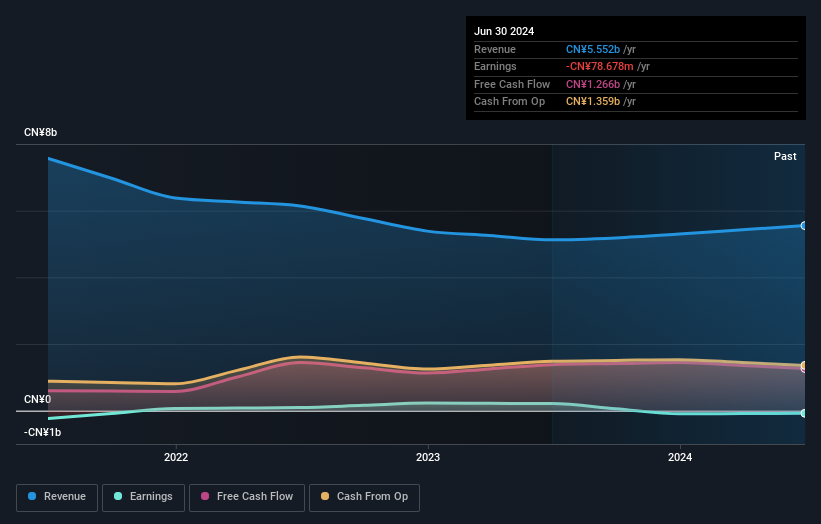Mao Ru Huang Maoye International Holdings Limited's (HKG:848) CEO is the most bullish insider, and their stock value gained 13%last week

Key Insights
- Insiders appear to have a vested interest in Maoye International Holdings' growth, as seen by their sizeable ownership
- The largest shareholder of the company is Mao Ru Huang with a 83% stake
- Past performance of a company along with ownership data serve to give a strong idea about prospects for a business
To get a sense of who is truly in control of Maoye International Holdings Limited (HKG:848), it is important to understand the ownership structure of the business. With 83% stake, individual insiders possess the maximum shares in the company. In other words, the group stands to gain the most (or lose the most) from their investment into the company.
As a result, insiders were the biggest beneficiaries of last week’s 13% gain.
In the chart below, we zoom in on the different ownership groups of Maoye International Holdings.
View our latest analysis for Maoye International Holdings

What Does The Lack Of Institutional Ownership Tell Us About Maoye International Holdings?
We don't tend to see institutional investors holding stock of companies that are very risky, thinly traded, or very small. Though we do sometimes see large companies without institutions on the register, it's not particularly common.
There are multiple explanations for why institutions don't own a stock. The most common is that the company is too small relative to funds under management, so the institution does not bother to look closely at the company. It is also possible that fund managers don't own the stock because they aren't convinced it will perform well. Institutional investors may not find the historic growth of the business impressive, or there might be other factors at play. You can see the past revenue performance of Maoye International Holdings, for yourself, below.

Hedge funds don't have many shares in Maoye International Holdings. Looking at our data, we can see that the largest shareholder is the CEO Mao Ru Huang with 83% of shares outstanding. This implies that they possess majority interests and have significant control over the company. Investors usually consider it a good sign when the company leadership has such a significant stake, as this is widely perceived to increase the chance that the management will act in the best interests of the company. Norges Bank Investment Management is the second largest shareholder owning 0.7% of common stock, and Xiaojuan Lu holds about 0.008% of the company stock. Interestingly, the third-largest shareholder, Xiaojuan Lu is also a Member of the Board of Directors, again, indicating strong insider ownership amongst the company's top shareholders.
Researching institutional ownership is a good way to gauge and filter a stock's expected performance. The same can be achieved by studying analyst sentiments. As far as we can tell there isn't analyst coverage of the company, so it is probably flying under the radar.
Insider Ownership Of Maoye International Holdings
The definition of an insider can differ slightly between different countries, but members of the board of directors always count. Management ultimately answers to the board. However, it is not uncommon for managers to be executive board members, especially if they are a founder or the CEO.
I generally consider insider ownership to be a good thing. However, on some occasions it makes it more difficult for other shareholders to hold the board accountable for decisions.
Our most recent data indicates that insiders own the majority of Maoye International Holdings Limited. This means they can collectively make decisions for the company. Given it has a market cap of HK$930m, that means they have HK$769m worth of shares. Most would be pleased to see the board is investing alongside them. You may wish todiscover (for free) if they have been buying or selling.
General Public Ownership
The general public, who are usually individual investors, hold a 17% stake in Maoye International Holdings. While this size of ownership may not be enough to sway a policy decision in their favour, they can still make a collective impact on company policies.
Next Steps:
While it is well worth considering the different groups that own a company, there are other factors that are even more important. To that end, you should learn about the 3 warning signs we've spotted with Maoye International Holdings (including 2 which don't sit too well with us) .
If you would prefer check out another company -- one with potentially superior financials -- then do not miss this free list of interesting companies, backed by strong financial data.
NB: Figures in this article are calculated using data from the last twelve months, which refer to the 12-month period ending on the last date of the month the financial statement is dated. This may not be consistent with full year annual report figures.
New: Manage All Your Stock Portfolios in One Place
We've created the ultimate portfolio companion for stock investors, and it's free.
• Connect an unlimited number of Portfolios and see your total in one currency
• Be alerted to new Warning Signs or Risks via email or mobile
• Track the Fair Value of your stocks
Have feedback on this article? Concerned about the content? Get in touch with us directly. Alternatively, email editorial-team (at) simplywallst.com.
This article by Simply Wall St is general in nature. We provide commentary based on historical data and analyst forecasts only using an unbiased methodology and our articles are not intended to be financial advice. It does not constitute a recommendation to buy or sell any stock, and does not take account of your objectives, or your financial situation. We aim to bring you long-term focused analysis driven by fundamental data. Note that our analysis may not factor in the latest price-sensitive company announcements or qualitative material. Simply Wall St has no position in any stocks mentioned.
About SEHK:848
Maoye International Holdings
An investment holding company, operates and manages department stores in Mainland China.
Good value very low.
Market Insights
Community Narratives




